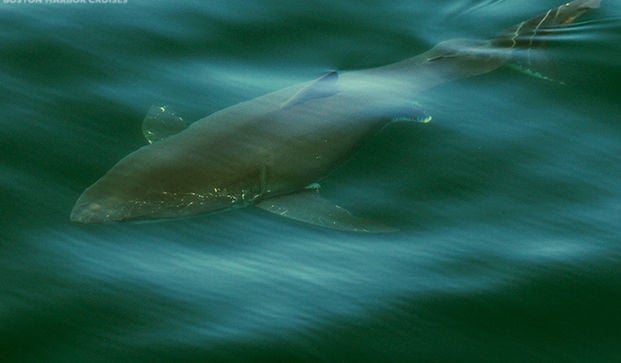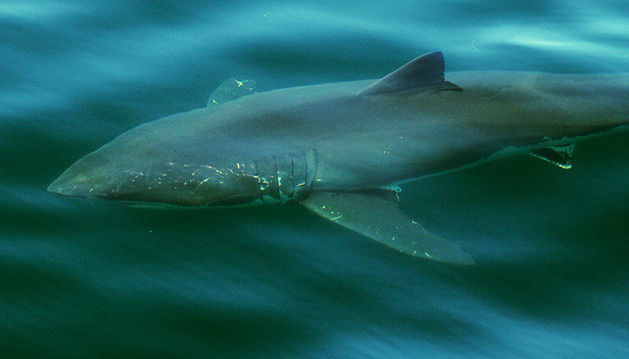A desert-dwelling student from the UA had a close-up encounter this summer with one of the top ocean predators off the coast of New England.
Charlie Landa, a University of Arizona undergraduate, was on a whale watching trip when he spotted a great white shark, a species rarely seen in the open water of the Stellwagen Bank National Marine Sanctuary north of Cape Cod in Massachusetts.
Landa, a natural resources major and marine biology minor from Phoenix, is spending his summer as an intern at the New England Aquarium in Boston where he is doing educational outreach and data collection on marine populations.
“We saw some humpback whales, then when it was time to leave, I saw a dorsal fin swimming, and I was like, ‘that’s a shark,’” he said.
Landa had never seen a shark in the wild before.
The boat pulled alongside the shark and photographs were taken that were later confirmed to be of a great white.
Great whites are rarely seen there, preferring a habitat along the Atlantic-facing beaches of the outer cape, the aquarium said. Even veteran whale watchers with decades of experience rarely see great white sharks in open water so far from where they normally frequent, according to aquarium experts.
But in recent years, the number of spotted grey seals — the shark’s preferred prey — in the outer cape have been growing. During the whale watching trip, seals were seen farther out in the open water, which might account for Landa’s rare sighting of the nearly 12-foot-long shark.
Since 2014, the shark and seal populations have been rising along the New England coast, according to a study conducted by the Massachusetts Division of Marine Fisheries and reported by National Geographic.
Globally, the sharks are mostly concentrated in warm coastal waters and are most frequently reported in South Africa, Australia, California and the northeastern United States, according to the International Union for Conservation of Nature.
The species is not yet considered endangered but is considered vulnerable by the conservation. They are protected by law in many places, as their most threatening predators are humans.





